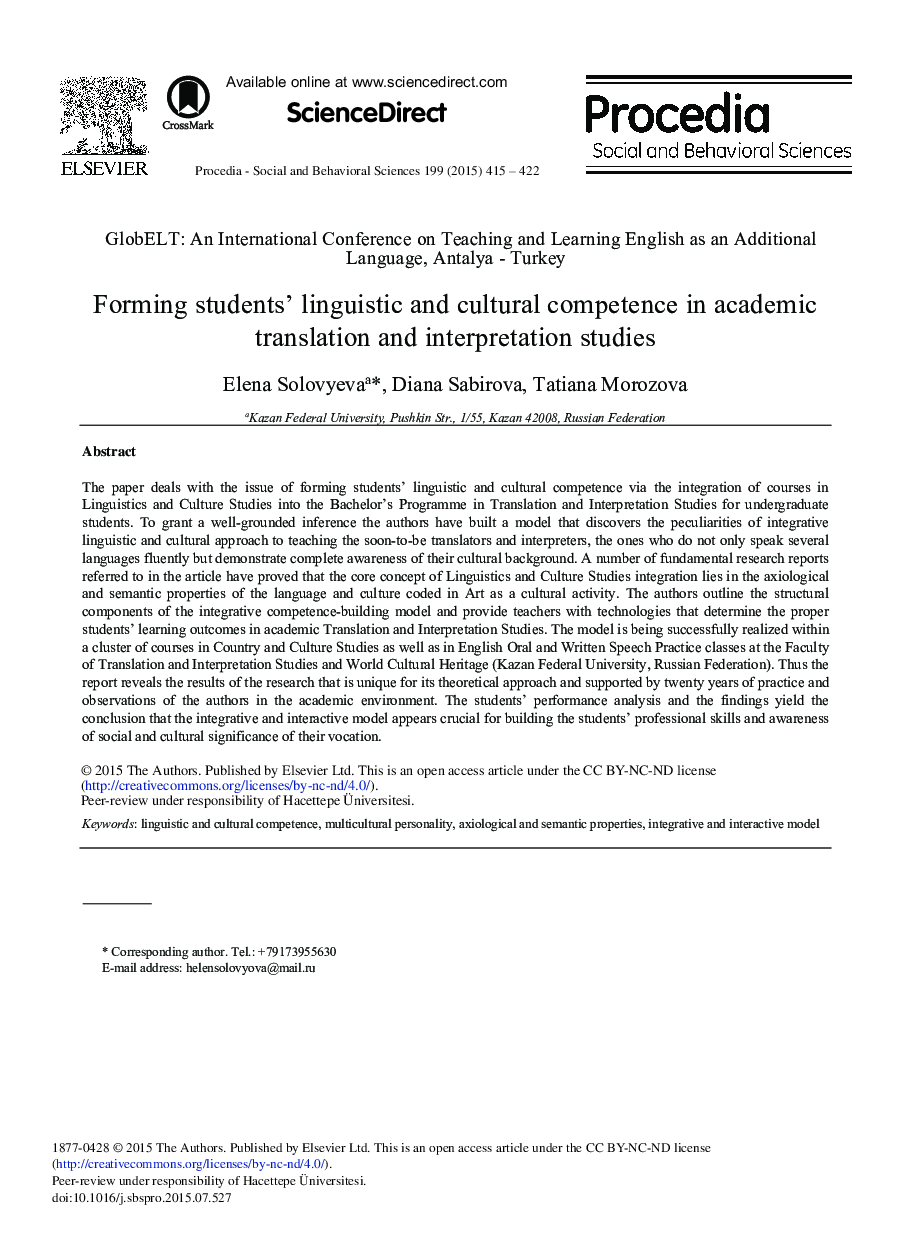| Article ID | Journal | Published Year | Pages | File Type |
|---|---|---|---|---|
| 1109806 | Procedia - Social and Behavioral Sciences | 2015 | 8 Pages |
The paper deals with the issue of forming students’ linguistic and cultural competence via the integration of courses in Linguistics and Culture Studies into the Bachelor's Programme in Translation and Interpretation Studies for undergraduate students. To grant a well-grounded inference the authors have built a model that discovers the peculiarities of integrative linguistic and cultural approach to teaching the soon-to-be translators and interpreters, the ones who do not only speak several languages fluently but demonstrate complete awareness of their cultural background. A number of fundamental research reports referred to in the article have proved that the core concept of Linguistics and Culture Studies integration lies in the axiological and semantic properties of the language and culture coded in Art as a cultural activity. The authors outline the structural components of the integrative competence-building model and provide teachers with technologies that determine the proper students’ learning outcomes in academic Translation and Interpretation Studies. The model is being successfully realized within a cluster of courses in Country and Culture Studies as well as in English Oral and Written Speech Practice classes at the Faculty of Translation and Interpretation Studies and World Cultural Heritage (Kazan Federal University, Russian Federation). Thus the report reveals the results of the research that is unique for its theoretical approach and supported by twenty years of practice and observations of the authors in the academic environment. The students’ performance analysis and the findings yield the conclusion that the integrative and interactive model appears crucial for building the students’ professional skills and awareness of social and cultural significance of their vocation.
